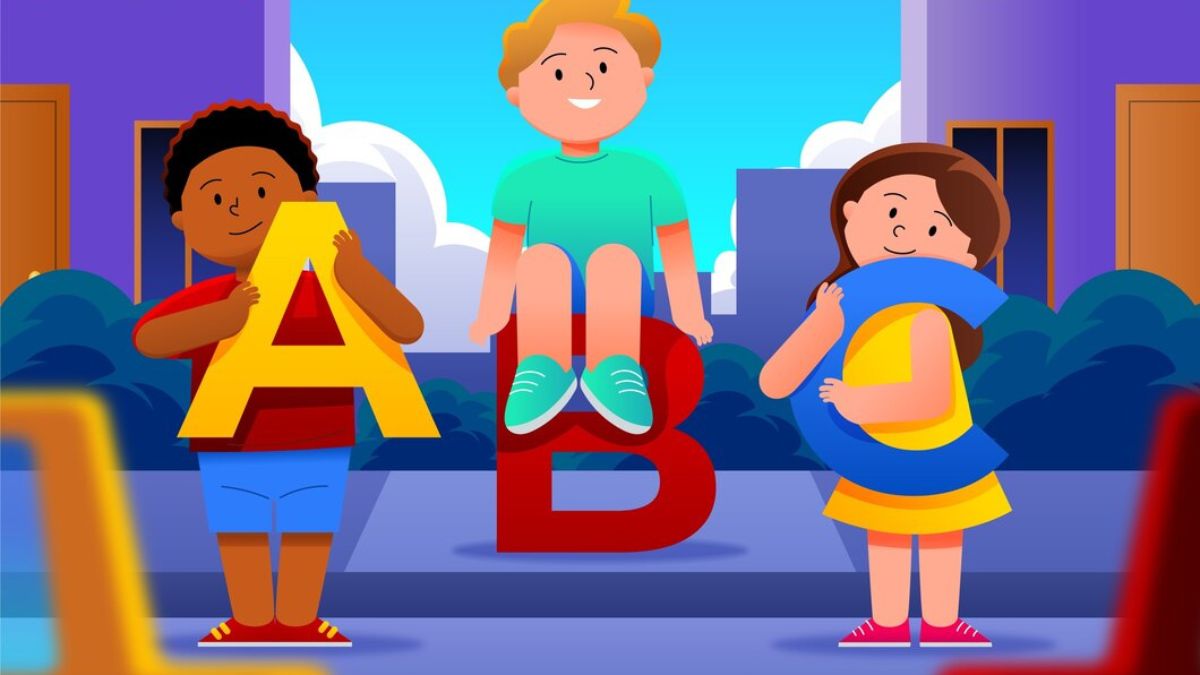EDUCATION
Understanding the University of Metaphysical Sciences Lawsuit

Legal challenges involving educational institutions often raise complex issues about the balance between academic freedom, institutional practices, and ethical responsibilities. The University of Metaphysical Sciences (UMS), a well-known institution specializing in metaphysical and spiritual education, has found itself at the center of such a situation. This blog explores the topic, breaks down the lawsuit in question, and considers its implications for the metaphysical education community, students, and the industry at large.
What is the University of Metaphysical Sciences?
The University of Metaphysical Sciences (UMS) is an online educational body offering courses and degrees in metaphysical, spiritual, and consciousness-based disciplines. Founded with a mission to provide affordable, high-quality metaphysical and spiritual education, UMS attracts students interested in deepening their knowledge of spirituality, mindfulness, and metaphysics. Its range of courses extends from meditation and spiritual philosophy to energy healing and dream interpretation.
With an accessible platform and holistic curriculum, UMS has gained popularity among those pursuing alternative education. However, like many niche institutions that deal with abstract and often criticized disciplines, UMS faces skepticism and scrutiny regarding its academic legitimacy, representations, and operations.
The Context of the Lawsuit
Details surrounding the UMS lawsuit vary depending on sources, but lawsuits of this nature against educational or metaphysical institutions typically involve the following issues:
Allegations of Misrepresentation
One of the key triggers for lawsuits involving online universities is misrepresentation. Alleged misrepresentation might include overstating the accreditation status of the institution or exaggerating the professional value of its degrees. Prospective students who feel they were misled may claim they invested time and money expecting credentials that carry professional weight, only to be disappointed.
For example, if an institution’s marketing materials claim its degrees are universally recognized but fail to clarify that accreditation is specific to certain organizations, students may perceive it as false advertising. Lawsuits like these highlight the tension between institutional marketing strategies and consumer expectations.
Disputes Over Tuition or Refund Policies
Another potential basis for lawsuits includes disputes over tuition fees or the lack of clarity in refund policies. Suppose students were unable to complete a program or dissatisfied with the content. If they encounter difficulty obtaining refunds, this often becomes a subject of legal complaint.
Recognition of Degrees by Professional Bodies
A common sticking point for institutions offering niche or metaphysical education is whether external bodies recognize their degrees as legitimate. Students may argue that they were promised qualifications that would advance their careers, yet find that professional associations, licensing bodies, or employers do not acknowledge their degrees.
Intellectual Property Concerns
Another area of contention with metaphysical education institutions can involve disputes over intellectual property within course content. For example, any claims that course materials were derived from work by unrelated sources without proper permission can lead to legal proceedings.
Understanding that many lawsuits stem from these issues creates crucial context for analyzing legal matters surrounding institutions like UMS.
The Broader Debate on Online Metaphysical Education
To fully grasp the implications of lawsuits involving entities like UMS, it’s necessary to factor in the broader controversies around metaphysical education.
Challenges with Accreditation
Unlike traditional universities, institutions focusing on metaphysical sciences often affiliate themselves with alternative accreditation bodies that specialize in non-traditional or non-mainstream education. While these accreditations serve to validate the curriculum within niche communities, they may not meet the criteria for widespread professional or academic recognition. This incongruence between expectations and reality fuels much of the controversy.
Demand for Spiritual Education
The rising interest in spirituality, mindfulness, and metaphysical sciences has paved the way for institutions like UMS to thrive. People across the globe find value in learning about philosophies and practices that align with personal growth and existential questions. However, skeptics often question whether such programs should qualify as academic degrees and whether institutions are capitalizing on personal beliefs without offering professional benefits.
Consumer Responsibility vs. Institutional Transparency
The relationship between educational institutions and students often hinges upon trust. While it’s the responsibility of consumers to thoroughly research the credentials, reputation, and offerings of a university, the institution has an equally significant obligation to ensure that information shared with prospective students is clear, accurate, and free of ambiguity.
Implications of the Lawsuit for the UMS Brand
The lawsuit, irrespective of its outcome, carries implications for UMS and the metaphysical education sector as a whole.
Impact on Reputation
Legal disputes can cast doubt on the credibility of an institution, regardless of whether claims are upheld in court. Institutions specializing in metaphysical science often operate with preexisting skepticism, making lawsuits even more damaging to their reputation. For prospective students, public allegations can decrease trust in the university and its offerings.
Raises Questions About Transparency
Legal challenges push institutions like UMS to reflect critically on how they market themselves and interact with their student body. For example, clearer communication on accreditation, intended use of degrees, and refund policies can protect institutions from similar legal issues in the future.
Challenges for the Metaphysical Education Sector
UMS isn’t alone—legal scrutiny on one high-profile institution often exposes larger issues within an entire educational sector. For universities offering alternative or spiritual education, the lawsuit highlights the growing need to bridge the gap between customer expectations and institutional transparency.
Protecting Yourself as a Student
If you’re considering enrolling in alternative education programs or niche institutions like UMS, here are practical tips to ensure that you make the right decision for your personal and professional goals:
- Research Accreditation
Verify the institution’s accreditation and understand the standing of the accrediting bodies in larger professional and academic spaces. Ask specific questions about recognition and how it translates to your goals.
- Clarify Refund and Cancellation Policies
Review the terms surrounding payments, cancellations, and refunds to prevent surprises. Ensure that the policies provided by the institution are explicit and reasonable.
- Read Student Reviews
Seek reviews and testimonials from past students for insights into the quality of education and their satisfaction levels. Consider third-party sources beyond the university’s promotional materials.
- Know Your Goals
Consider whether your primary objective is personal growth or professional advancement. If aiming for career progression, confirm whether the degree will be recognized by relevant bodies in your industry.
- Understand Legal Rights
Educate yourself about the laws governing educational services and the consumer protections in place should you encounter misleading practices.
A Step Forward for Accountability
Regardless of the details, lawsuits like the one involving the University of Metaphysical Sciences raise essential questions about accountability, transparency, and the need for clarity in non-traditional education. Both institutions and students can benefit from taking these issues seriously—students by thoroughly researching their education providers, and institutions by prioritizing honest communication and reliable practices.
The growing interest in metaphysical and spiritual education is undeniable. For this movement to continue thriving, institutions like UMS must rise to the occasion, redefining standards for ethics and transparency within the realm of alternative education.
EDUCATION
Exploring Pondershort.com, A Platform for Thoughtful Readers

Are you a person who enjoys thoughtful, concise content that gets straight to the point? If so, Pondershort.com might be the perfect platform for you. While brief moments of clarity often make the greatest impact, Pondershort.com aims to capture just that—thoughtful brevity paired with meaningful depth.
But what exactly can readers expect from Pondershort, and why should you consider engaging with its content? This blog will walk you through what Pondershort offers, its unique value, and how it enriches the experience of curious readers around the globe.
What is Pondershort.com?
At its essence, Pondershort.com seems to embody the art of condensing complex ideas into digestible, engaging formats. While the exact details from the scraped page couldn’t be retrieved, we can explore the potential identity of the platform based on its name and observable trends in content consumer preferences. “Ponder” suggests serious, reflective thought, while “short” implies brevity and simplicity. Together, Pondershort.com likely provides compact yet impactful content designed to provoke thought, spark curiosity, or deliver information quickly and effectively.
Whether you’re seeking quick insights on popular topics, short pieces of creative writing, or succinct editorials on timely issues, Pondershort seems poised to captivate readers’ attention through concise storytelling.
Why Brevity Matters
Brevity is more than just a convenience in today’s fast-paced, information-overloaded society—it’s a necessity. Here’s why platforms like Pondershort make such an impact:
- Time-Saving Content: Most of us have mere moments to spare between meetings, commutes, or responsibilities, and discovering digestible content lets you engage meaningfully without devoting hours.
- Retention of Ideas: Short, well-constructed pieces often stay with us longer. By focusing on key ideas or themes, Pondershort likely ensures content that resonates is more memorable.
- Accessible Format: Brevity allows readers of all experience levels to access complex themes without feeling overwhelmed or locked out of the discussion.
Simply put, thoughtful brevity makes content both efficient and empowering—a specialty platforms like Pondershort fully capture.
Why Explore Pondershort.com?
Pondershort.com might attract a diverse audience of thinkers, writers, and learners. Its design likely reflects several key values that keep readers coming back for more:
1. Content Crafted With Care
Behind every impactful piece lies quality craftsmanship. Pondershort’s tone suggests trustworthiness and authenticity, highlighted through well-thought-out, descriptive posts.
2. A Vibrant Reading Experience
Pondershort doesn’t just offer one type of writing—it’s likely overflowing with variety. One week, you may encounter a reflective essay, while the next delivers bite-sized trivia you never realized you needed to know.
3. Deep Themes in Digestible Portions
By emphasizing clarity, Pondershort likely delivers nuanced perspectives in an accessible package. Despite their size, shorter works can evoke powerful emotional or intellectual responses due to their focus and sharp articulation.
4. Engagement Through Questions
Pondershort might employ strategies that keep you reflective long after closing the tab. Introspective questions, actionable insights, and fewer wasted words tailor every piece to invite future discussion.
Who is Pondershort For?
If you’re someone who values quality content but prefers impactful statements over exhaustive essays, Pondershort is worth exploring. From lifelong learners to busy professionals who want meaningful break-time reads, there’s something for everyone.
The Learner
Do you enjoy looking into new concepts, ideas, or debates but often find traditional articles too long and dense? Pondershort may have you covered with its easily consumable pieces.
The Creative Mind
Writers, artists, and creatives often turn to platforms like Pondershort for short bursts of inspiration. Sometimes a single concise story or thought can leave sparks for prolonged brainstorming.
The Curious Professional
Whether you’re an entrepreneur, researcher, or worker seeking regular thought-provoking updates, Pondershort’s ability to distill complex issues into digestible pieces could fit your on-the-go lifestyle.
How Pondershort Sets Itself Apart from Other Platforms
What separates Pondershort from platforms offering short-form content like tweets, TikToks, or listicles is its clear investment in quality over distractions. Here’s a comparison of what sets it apart:
- Intellectual Engagement vs. Quick Amusement
Pondershort’s likely aim is to engage, not entertain mindlessly. Every piece is built to add value—not just serve as background noise.
- Immersive Reading vs. Shallow Skimming
Expect to linger over rich sentences or concise phrasing rather than snap judgments competing for clicks.
- Sustainability in Presentation vs. Fads & Virality
By anchoring itself in effective design and timeless insight, Pondershort avoids trends that fade.
Pondershort stands to offer what many platforms promise but few deliver—depth rooted in simplicity.
How to Begin Your Journey With Pondershort
Dive in! Start by dedicating a few minutes daily to discovering what treasures lie within the platform. Could it be inspiring stories? Quick tech tips? Or even philosophical tidbits that make you ponder (pun intended)? Allow the variety and inviting nature of the platform to guide you toward authors, themes, or styles you love most.
There’s also immense potential to subscribe—for instance, imagine daily five-minute reads landing directly in your inbox. Platforms like these often use newsletters or social media posts to keep their audiences updated and engaged.
Could Pondershort Help You Share Your Thoughts?
Perhaps one of Pondershort’s most intriguing potential offerings is the chance for readers to evolve into contributors. If you’re someone with a unique perspective, this could be an excellent place to start publishing. Thoughtful platforms often work with emerging writers looking to hone their skills and build audiences.
Be sure to explore additional resources, like community forums or editorial blogs, if they’re offered. Sometimes reciprocal engagement with active audiences inspires even richer content down the line!
Aligning With the Pondershort Mindset
While specifics may differ depending on the website’s structure, a foundational truth remains clear—well-curated ideas will always surpass quantity or chaos in appeal.
Pondershort reminds us to admire precision—the rare skill within modern media to encapsulate worlds of meaning in just a few phrases.
Discover Depth in Brevity
Platforms like Pondershort boldly insist that less is more. They show how significant value doesn’t always hinge on producing longer works—it’s about selecting the most essential details to communicate powerfully.
Visit Pondershort.com today, where thought and precision align perfectly with your modern reading experience. Start pondering. Expect clarity
EDUCATION
A Comprehensive Guide to UTI Blackboard, Everything You Need to Know

For students and faculty at the University of Texas at Austin (UTI), navigating academic life involves more than juggling classes and deadlines—it’s about leveraging technology that enhances learning. One such powerful tool is UTI Blackboard, an online learning management system tailored to streamline education through technology.
Whether you’re a new student looking to understand the platform or a faculty member aiming to improve course delivery, this guide will walk you through everything you need to know about UTI Blackboard. From its standout features to simple tutorials on how to use it effectively, you’ll find all the resources you need right here.
What is UTI Blackboard?
UTI Blackboard is the official Learning Management System (LMS) used by the University of Texas at Austin to provide online spaces for teaching and learning. Recognized globally in educational technology, Blackboard serves as a central hub for assignments, announcements, grades, discussion forums, and much more.
Designed with accessibility and ease of use in mind, the platform empowers users with efficient tools to collaborate, learn, and teach effectively. From managing academic calendars to submitting essays and accessing supplementary materials, it’s a one-stop solution for enhancing the educational experience.
Why is UTI Blackboard Important?
UTI Blackboard plays a pivotal role in bridging the gap between classroom education and digital learning. Here’s what makes it so essential:
- Centralized Communication: Students and faculty can securely exchange information, announcements, and resources through a single, user-friendly space.
- Convenient Resource Access: Lecture materials, recorded videos, reading lists, and external links are always just a few clicks away.
- Streamlined Assignment Submission: No more chasing due dates—Blackboard’s system enables seamless uploading, tracking, and grading of assignments.
- Interactive Collaboration: Communication tools such as message boards and chatrooms enhance interaction and encourage engagement, making group learning efficient.
- Grade Transparency: Students can easily check their grades and receive instructor feedback, fostering transparency and trust.
With such capabilities, UTI Blackboard continues to be instrumental in shaping effective education delivery.
Key Features of UTI Blackboard
If you’re using UTI Blackboard for the first time, here are its key features that should catch your eye:
1. Personalized Dashboard
Once logged in, you’ll encounter a personalized dashboard that acts as your control center. From upcoming assignments to recent announcements, the dashboard keeps you updated on your academic activities in one glance.
2. Course Content
Blackboard features a dedicated space for each enrolled course. Here, you’ll find syllabi, lecture materials, multimedia content, and assigned readings. Think of it as your digital textbook for every subject.
3. Assignments and Assessments
The Assignments tool provides instructions, deadlines, and direct submission portals for projects and essays. For quizzes or exams, the Assessments section allows secure test-taking—with some professors even enabling auto-grading for instant feedback.
4. Discussion Forums
Engage in academic debates and group dialogues without stepping outside your room. Discussion boards promote continuous learning and collaborative thought exchanges among peers and instructors.
5. Grades and Feedback
Want to check how you performed in your last test? The My Grades section provides quick access to grades and personalized feedback from your professors.
6. Collaborate Ultra
This Blackboard-integrated tool creates a virtual classroom experience. Collaborate Ultra supports live lectures, screen-sharing, breakout groups, and real-time Q&A sessions—all within an easy-to-navigate interface.
7. Mobile Access
Thanks to the Blackboard mobile app, you can access learning materials, complete quizzes, send messages, and stay organized on the go.
How to Get Started With UTI Blackboard
If you’re new to UTI Blackboard, here’s a step-by-step guide to help you get started:
Step 1: Log in
- Go to the official UTI Blackboard portal at blackboard.utexas.edu.
- Enter your university credentials, including your UT Austin ID and password.
Step 2: Navigate the Dashboard
- Once logged in, you’ll land on your dashboard.
- Explore upcoming tasks, recently updated courses, and sticky announcements. Use the menus or links to access specific sections.
Step 3: Access Your Courses
- Select “Courses” from the menu to view a list of all classes you’re enrolled in.
- Click on a course to find weekly topics, assignments, and learning resources.
Step 4: Submit Assignments
- To submit assignments, click on the course > Assignments > Upload or “Add File.”
- Review instructions provided—Blackboard often allows you to upload Word documents, PDFs, or multimedia as needed.
Step 5: Join Discussions and Live Sessions
- Navigate to the Discussions tab to participate in threaded discussions.
- For live classes, select Collaborate Ultra. Make sure your microphone and webcam are working to ensure smooth participation.
Step 6: Check Grades
- Visit the Grades section to view progress and feedback in real-time.
Tips for Maximizing Your Experience on UTI Blackboard
To ensure you get the most out of UTI Blackboard, here are some practical tips to keep in mind:
- Set Reminders: Use Blackboard’s built-in tools to enable reminders and notifications for due dates or announcements.
- Download Course Materials: Internet troubles shouldn’t stop your progress. Download essential reading materials ahead of time.
- Participate Actively: Engage in forums, ask questions, and collaborate with peers. Active participation helps build rapport with professors, too!
- Monitor Announcements: Check for updates daily—it’s the best way to stay informed.
- Leverage Mobile Accessibility: The mobile app ensures you can stay connected regardless of your location.
Troubleshooting Common Issues
While UTI Blackboard aims for a seamless experience, occasional technical issues may arise. Here’s how to tackle them:
- Forgotten Password:
Head to the UT Austin IT Helpdesk to reset your credentials.
- Slow Load Times:
Clear browser cache or ensure a stable connection to avoid lags.
- Unable to See Courses:
Get in touch with your professor or course administrator—they can check whether your enrollment has been correctly set up.
For additional help, UT Austin’s centralized IT support team is always available to assist.
Why UTI Blackboard is the Future of University Learning
By integrating technology and education, UTI Blackboard aligns perfectly with the evolving needs of students and educators. It encourages personalized learning, transparent communication, and collaborative growth under one unified platform.
The ability to tailor educational tools to diverse learning styles makes Blackboard indispensable for both learners and faculty. Whether you’re solving complex equations in online classrooms or collecting research resources for an analysis paper, Blackboard ensures your academic toolkit is smarter, faster, and inclusive.
Start Exploring UTI Blackboard Today!
Getting started with UTI Blackboard is the first step toward simplifying and enhancing your academic experience. By understanding its thoughtful features and best practices for use, you’re better positioned to excel in your studies while maintaining an organized workload.
If you’re a first-time user or looking to upskill in using UTI Blackboard’s advanced tools, bookmark this guide and keep exploring. With just a few tweaks to your daily workflow, digital learning can truly become an effortless part of your university life.
Happy learning!
EDUCATION
ABCya Explained, Fun and Learning Combined for Kids

When it comes to balancing education and entertainment for children, few platforms manage to do it as well as ABCya. Whether your goal is to reinforce classroom learning or provide engaging activities at home, ABCya offers a solution that motivates kids while helping them build essential skills.
This blog will explore what ABCya is, how it benefits young learners, its key features, and how parents and teachers can make the most of this online learning tool.
What is ABCya?
ABCya is an interactive educational platform offering a wide variety of games tailored to preschool, kindergarten, and elementary-aged children (grades K–5). It blends fun with learning through activities that target essential skills in math, language arts, science, and more. By turning lessons into play, the platform ensures kids stay interested and invested in their education.
From addition and subtraction to reading comprehension and typing practice, ABCya provides tools to reinforce academic progress while cultivating creativity and critical thinking.
Why Choose ABCya?
- Interactive Educational Platform:
Games are designed to complement school curricula across core academic areas.
- Targeted for Grades K–5:
Age-appropriate content means there’s something valuable for every child.
- Fun and Engaging:
A wide variety of colorful, challenging, and rewarding activities to keep kids entertained.
If you’re tired of monotonous learning, ABCya’s game-based educational model may be the perfect answer.
Key Features of ABCya
ABCya is packed with useful features aimed at both children and educators. Here’s an overview of what sets it apart:
1. Broad Range of Subjects
ABCya covers an impressive range of academic disciplines, including:
- Math – Learn basic operations, geometry, fractions, and telling time.
- Language Arts – Practice spelling, grammar, reading comprehension, and vocabulary.
- Typing – Develop keyboarding skills with fun typing games.
- STEM Games – Nurture problem-solving and science-focused activities like coding.
- General Knowledge – Encourage creativity with activities like drawing or puzzle solving.
This makes it easy for parents and teachers to find specific games that align with a young learner’s needs and interests.
2. Grade-Specific Content
ABCya is carefully tailored to match the developmental stage of its audience. Whether your child is starting preschool or tackling advanced concepts in grade five, you can find games adjusted to their precise skill level.
- Preschoolers are introduced to pattern recognition and simple phonics.
- Kindergarteners explore early addition and sight words.
- Older children work on multiplication, logical reasoning, and more.
3. Easy Navigation with Kid-Friendly Design
ABCya’s colorful, intuitive interface is designed specifically for young learners. Children can confidently explore the website to easily find their favorite topics or discover new challenges.
4. Tasting Notes for Parents and Teachers
ABCya provides descriptions for each game so parents and teachers know exactly what children will learn. These notes explain:
- The objective of the activity
- Skills reinforced
- Grade level suitability
This makes it easy to see how a game aligns with educational goals.
5. Free and Premium Plans
ABCya offers a selection of free games, giving you access to educational resources without needing to pay upfront. For families looking for more customized access and an ad-free experience, there is a premium subscription that unlocks all games across devices.
6. Cross-Device Compatibility
No need to worry about bulky apps or limited functionality. ABCya works seamlessly across browsers, tablets, and mobile devices, offering engaging educational experiences wherever you go.
Benefits of ABCya for Kids and Educators
Encourages Independent Learning
ABCya puts control in kids’ hands, allowing them to choose activities based on their own interests. This independence fosters confidence and self-motivation.
Combines Education with Play
Educational games help reinforce lessons without children realizing they’re “studying.” It’s a win-win for both teachers and parents who want to teach without forcing learning.
Cultivates Key Skills
By integrating typing, puzzles, and problem-solving tasks, ABCya builds skills essential for academic success and personal development.
Supports Teachers in Classrooms
Teachers can integrate ABCya into lesson plans, giving students a hands-on way to reinforce concepts discussed during class. Many games align with specific classroom standards, making them a valuable tool for educators.
How Parents and Teachers Can Get Started with ABCya
- Visit the ABCya Website
Simply open the website on a web browser or compatible device.
- Browse By Grade
Search for games by grade level to ensure they’re matched to a child’s skills.
- Access Free Features or Upgrade for Premium
While the free account offers many great games, you can enhance the learning experience with the premium subscription, which removes ads and unlocks advanced content.
- Set Goals and Explore Together
Help children identify academic areas they want to focus on—such as improving spelling or mastering fractions—and find games that address those skills.
- Monitor Progress
Play alongside kids or review descriptions to understand what they’re learning. While the platform encourages independent play, active engagement from parents and teachers enhances the value of each activity.
FAQs About ABCya
Is ABCya Suitable for Homeschool Use?
Absolutely! ABCya can supplement homeschool lessons with its structured activities and grade-appropriate games. Many homeschoolers use it to cover core concepts in a fun way.
What Devices Are Compatible?
ABCya works across web browsers, tablets, and mobile devices, both Android and iOS.
Is ABCya Ad-Free?
The free version features ads, but premium accounts enjoy an ad-free experience.
Does My Child Need Supervision?
The user-friendly platform allows kids to explore independently, but younger children may benefit from occasional guidance.
How Much Does Premium Cost?
Premium plans vary, but the cost is budget-friendly with monthly and annual subscriptions available.
Elevate Learning the Fun Way with ABCya
ABCya proves that learning doesn’t have to be boring—it can be bright, interactive, and exciting! Whether your goal is to help students master core academic skills or simply keep them entertained while promoting growth, ABCya delivers.
Start exploring the world of educational games today—visit ABCya and unlock the power of playful learning for your child or classroom.
-

 EDUCATION7 months ago
EDUCATION7 months agoHighlights From the September 18 Board of Education Meeting
-

 PLATFORM6 months ago
PLATFORM6 months agoThe Ultimate Guide to MyDesi.Net – Where Culture Meets Connection
-

 EDUCATION7 months ago
EDUCATION7 months agoA Look Back at the Board of Education City of Linden 2020 and Manganello’s Impact
-

 TECHNOLOGY7 months ago
TECHNOLOGY7 months agoUnderstanding Mega-Personal.Net Technology and Its Applications
-

 TRAVEL7 months ago
TRAVEL7 months agoTravel Smarter with TravelsForNow, Your Guide to Exploring the World
-

 GAME7 months ago
GAME7 months agoWhat is Steamrip? Everything You Need to Know
-

 HOME IMPROVEMENT7 months ago
HOME IMPROVEMENT7 months agoHome Depot Tool Rental, Everything You Need to Know
-

 CRYPTO7 months ago
CRYPTO7 months agoCrypto Wallets 101, What You Need to Know About eCRYPTO1 Wallets
